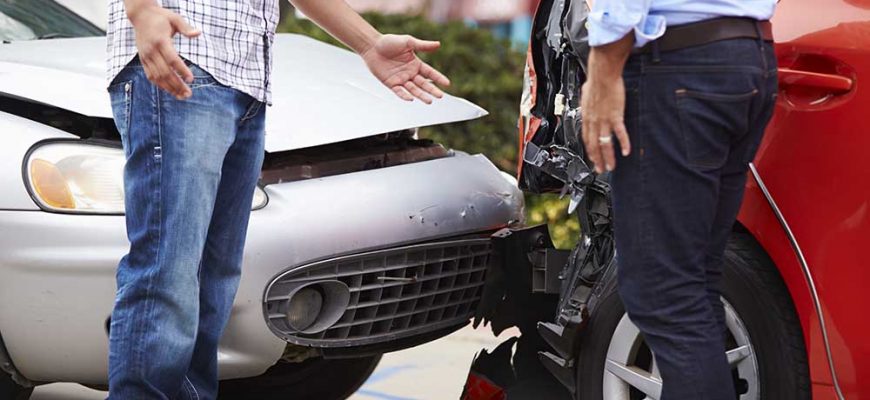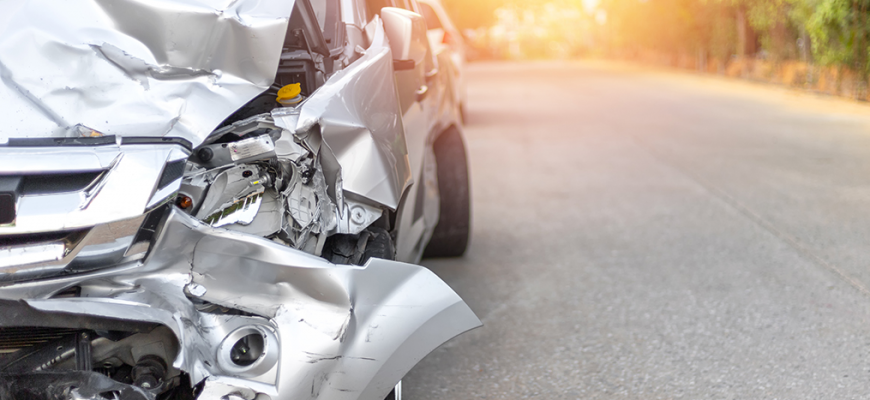Dealing with the Emotional Aftermath of a Car Accident

Every year, thousands of Australians experience the trauma of a car accident. While the immediate focus often lies on physical injuries, the emotional and psychological scars can linger long after the physical wounds have healed. Understanding and addressing the emotional aftermath is crucial for a full recovery. This guide aims to navigate the complex journey of emotional healing post-accident, offering support, advice, and resources available in Australia.
The Psychological Aftermath
Car accidents can leave a profound impact on one’s mental health, invoking a range of emotional responses including shock, anger, guilt, and a pervasive sense of vulnerability. For some, these feelings evolve into more severe conditions such as anxiety, depression, or even Post-Traumatic Stress Disorder (PTSD). Recognizing the signs of PTSD, which may include flashbacks, nightmares, and severe anxiety, is a crucial step in seeking the necessary help and beginning the healing process.
Recognising Symptoms
The emotional toll of a car accident can manifest in various ways. Symptoms to watch for include difficulty sleeping, intrusive thoughts about the accident, heightened irritability, and avoidance of driving or talking about the incident. These signs indicate that the emotional impact of the accident is significant and that professional help may be needed to navigate the recovery process effectively.
Navigating the Path to Emotional Recovery
Seeking Professional Help
Acknowledging the need for help is a sign of strength. In Australia, resources like the Australian Psychological Society’s ‘Find a Psychologist’ service and Beyond Blue provide access to professionals specializing in trauma. Engaging with a psychologist or counsellor can equip you with strategies to manage your emotions and facilitate a healthier recovery process.
Self-Care Strategies
In the wake of an accident, self-care is paramount. Establishing a routine, engaging in physical activity, and dedicating time to hobbies that bring joy can significantly impact emotional well-being. Practices such as mindfulness and meditation can also offer solace, helping to manage stress and anxiety. Remember, allowing yourself time to heal is not only necessary but vital.
Building a Support Network
Leaning on Loved Ones
The value of a strong support network cannot be overstated. Sharing your feelings with friends and family can provide comfort and reduce the sense of isolation that often accompanies trauma. Being open about your struggles allows your loved ones to offer the support you need during this challenging time.
Community and Online Resources
For those seeking the camaraderie of individuals with shared experiences, numerous support groups and online forums cater to accident survivors. Organizations like Lifeline Australia and the Black Dog Institute offer emotional support and resources to those struggling with the aftermath of traumatic events.
Legal and Financial Considerations
Dealing with insurance claims and potential compensation can add an additional layer of stress to an already tense situation. It’s advisable to consult with legal professionals specializing in car accidents and compensation law to navigate these complexities. This not only helps in understanding your rights but can also ease the burden of financial uncertainties post-accident.
Moving Forward After a Car Accident
Regaining Confidence Behind the Wheel
For many, the thought of driving again can be daunting. Taking small steps, such as short drives in familiar areas with a supportive companion, can help rebuild confidence. Enrolling in a refresher driving course can also provide a structured way to regain your driving skills and confidence. It’s essential to move at your own pace and acknowledge that regaining confidence is a gradual process.
Conclusion
The road to recovery after a car accident can be long and fraught with challenges. However, understanding the emotional impact, recognizing the symptoms of distress, and taking proactive steps towards healing can significantly aid in the recovery process. Remember, seeking professional help, leaning on the support of loved ones, and utilizing available resources can make a substantial difference in overcoming the trauma of a car accident.
By addressing both the emotional and physical aftermath, individuals can embark on a comprehensive path toward recovery, eventually finding their way back to a sense of normalcy and well-being.
Resources for Further Support
- Beyond Blue – Support for anxiety, depression, and suicide prevention
- Lifeline Australia – 24-hour crisis support and suicide prevention
- Black Dog Institute – Resources on mental health
This guide aims to serve as a comprehensive resource for Australians dealing with the emotional aftermath of a car accident, providing the necessary tools and information to navigate the path to recovery.
Car Accidents Without Insurance: A Guide for South Australian Drivers

Every year, numerous South Australians find themselves tangled in the aftermath of car accidents. Among these incidents, a significant portion involves drivers without insurance, leading to complex legal and financial dilemmas. This article aims to navigate South Australian drivers through the immediate steps and considerations following a car accident, particularly when uninsured, ensuring safety and minimizing potential repercussions.
Understanding Insurance Requirements in South Australia
In South Australia, it’s mandatory for all vehicle owners to have Compulsory Third Party (CTP) insurance, which is included in vehicle registration fees. This insurance covers injuries to people if the vehicle owner or driver is at fault in an accident. However, it does not cover damage to vehicles or property, which is where comprehensive or third-party property insurance comes into play. Driving without at least CTP insurance is illegal, with severe penalties for non-compliance, highlighting the gravity of maintaining at least the minimum insurance coverage.
Immediate Steps Following a Car Accident
Ensure Safety
The immediate aftermath of a car accident can be chaotic and confusing. The first priority should always be safety. Check for injuries among all parties involved. If anyone is injured, call emergency services immediately. If the vehicles are posing a hazard, move them to a safe location, if possible.
Call for Help
South Australian law requires the police to be notified if the accident causes injury or significant property damage. If in doubt, it’s safer to call the police. They can provide necessary assistance and create an official accident report, which may be crucial for legal and insurance purposes.
Assessing the Situation and Information Exchange
Once everyone’s safety is ensured, exchange names, addresses, phone numbers, and vehicle details with the other driver(s). Note the location and time of the accident, and if possible, take photos of the scene and any damages. Avoid discussions about who is at fault, as these statements can complicate legal and insurance matters.
Dealing with a Car Accident Without Insurance
Legal and Financial Implications
Driving without insurance can expose you to significant financial risks. If found at fault, you could be liable for the cost of repairs to all vehicles involved, as well as compensation for any injuries. These expenses can be financially crippling, underscoring the importance of at least having CTP coverage.
Seeking Legal Advice
It’s advisable to consult a legal professional to understand your rights and obligations following an accident, especially if uninsured. They can provide guidance on how to navigate potential claims against you and explore options for managing the financial implications.
Importance of Choosing a Trusted Crash Repairer
In the event of a car accident, choosing a reputable crash repairer is crucial, particularly before contacting your insurer, if you have a choice of repairer. This decision can significantly impact the quality of repairs and the overall outcome of your claim. Investigate local repairers, read reviews, and seek recommendations to find a trustworthy service provider. This proactive approach can prevent insurers from directing you to less reputable repairers, ensuring a higher standard of repair for your vehicle.
Reporting to Authorities and Insurance Considerations
Report the accident to the police if required by South Australian law, and obtain a copy of the report for your records. If you have insurance that covers damage to others, notify your insurer as soon as possible. Provide all necessary details and cooperate with their investigation. If you lack comprehensive insurance, discussing the situation with a legal advisor can help you understand how to manage any claims made against you.
Navigating a car accident without insurance in South Australia requires a clear understanding of legal requirements, immediate steps for safety, and strategic decisions regarding vehicle repairs. While the consequences of driving uninsured can be severe, taking informed actions post-accident can mitigate the negative impacts. Ultimately, maintaining appropriate insurance coverage is the most effective strategy to protect yourself from the significant financial and legal risks associated with car accidents. Prioritize safety, stay informed, and drive responsibly to minimize the chances of finding yourself in such a predicament.
What to do after an accident
What to Do After a Car Accident: A Guide for South Australian Drivers
Navigating the aftermath of a car accident can be overwhelming, especially amidst the stress and confusion that often ensue. For drivers in South Australia, understanding the steps to take following an accident is crucial—not only to ensure the safety and well-being of all involved but also to navigate the legal and insurance processes that follow. This guide provides a comprehensive overview of what to do after a car accident, emphasizing the importance of informed decisions, particularly when selecting a crash repairer.
Immediate Steps Following an Accident
Ensure Safety First
The immediate aftermath of an accident is critical. Your first priority should be to check for injuries among all parties involved. If anyone is injured, move to a safe location if possible, but do not leave the scene. Disturbing the accident scene should be avoided unless necessary for safety.
Assess the Situation
Depending on the severity of the accident, calling emergency services on 000 for medical support, fire services, or police assistance might be necessary. In South Australia, certain accidents must be reported—such as those involving injuries, significant property damage, or uncooperative parties.
Legal and Safety Obligations
Reporting to the Police
In South Australia, the law requires reporting accidents under specific circumstances, including injuries or significant damage. The report should be made to the nearest police station, and failure to report can have legal consequences.
Exchange Information
Exchanging contact and insurance information with the other driver(s) is essential. This includes names, addresses, phone numbers, insurance details, and vehicle registration numbers. It’s important to remain calm and cooperative during this process.
Documenting the Accident
Collect Evidence
Taking photos of the scene, the damage to all vehicles, and any relevant road signs or conditions can be invaluable. Additionally, gathering the contact details of any witnesses can support your account of the event.
Take Notes
As soon as you’re able, write down your recollection of the accident, including the time, location, and how it occurred. These notes can be crucial for insurance claims and legal matters.
Dealing with Insurance
Immediate Contact
Notify your insurer about the accident as soon as possible. Prompt communication is essential to initiate the claims process and ensure coverage.
Understanding Your Policy
Familiarize yourself with your insurance policy, especially regarding the “choice of repairer” if your policy includes this option. This knowledge is vital before making any decisions about vehicle repairs.
Choosing a Trusted Crash Repairer
Importance of Choice
Selecting a crash repairer you trust is crucial before contacting your insurer, particularly if you have a choice of repairer in your policy. This decision can significantly impact the quality of your vehicle’s repairs.
Researching Repairers
Do your homework by researching reputable crash repairers in South Australia. Consider factors such as certifications, customer reviews, and personal recommendations. A trusted repairer can ensure your vehicle is restored to its pre-accident condition.
Avoiding Sub-Par Repairers
Be wary of automatically accepting your insurer’s suggested repairer without conducting your research. This can lead to issues with the quality of repairs. Remember, you have the right to choose a repairer who meets your standards.
Post-Accident Care and Support
Follow-Up Medical Care
Even if you feel fine, it’s wise to seek medical attention after an accident. Some injuries may not be immediately apparent but can cause problems later.
Legal Advice
If there are disputes about fault or complications with insurance claims, consulting with a legal professional may be beneficial. Legal advice can help navigate these complexities.
Support Services
Accidents can be traumatic. Accessing support services for mental health and well-being is as important as addressing physical injuries. Various resources are available for South Australians in need.
Being involved in a car accident is a challenging experience. However, knowing the steps to take afterward can alleviate some of the stress and confusion. By following this guide, South Australian drivers can ensure their safety, fulfill their legal obligations, and make informed decisions throughout the insurance and repair processes. Keep a checklist of these steps in your vehicle, ensuring you’re prepared for the unexpected.
Remember, the decisions you make after an accident can have long-term implications on your safety, your vehicle’s condition, and your legal and financial well-being. Stay informed, stay safe, and choose wisely.

